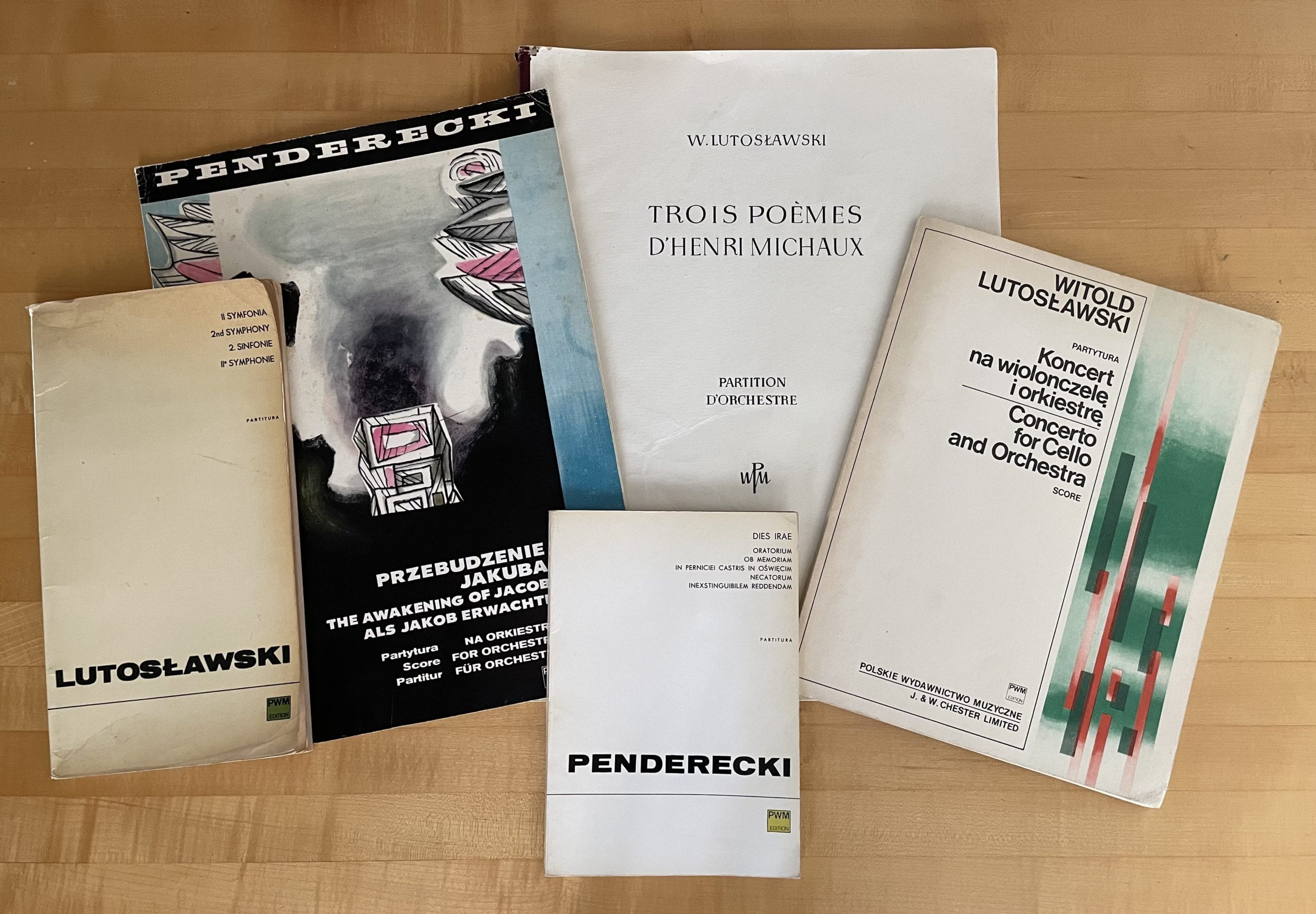A sizeable collection of scores by Polish contemporary composers was recently donated to us by Katherine Quittner, a film music composer, orchestrator, music editor and music supervisor on dozens of big Hollywood films since the mid-1980s. Some of the titles Ms. Quittner worked on included Father of the Bride, A River Runs Through It, Dracula, Quiz Show, Miracle on the 34th Street, Dante’s Peak, City of Angels, Bicentennial Man, Teenage Mutant Ninja Turtles, Scooby-Doo, and The Celestine Prophecy, among others. The story of how Ms. Quittner became acquainted with Polish music and musicians is quite fascinating and her significant participation in adapting Wojciech Kilar’s music for Francis Ford Coppola’s Dracula deserves a separate article on the subject.
Ms. Quittner’s began to study composition in the U.S. and the story of how she first entered the world of Polish music is quite fascinating. In a recent email to the Polish Music Center, she wrote,
My first music composition teacher was Paul Glass and he had lived in Poland and studied with Witold Lutosławski. Glass was my hero and role model so when he left the US for Switzerland, I took a small backpack and went to Baden [Germany]. And then, because he was going to visit his former paramour in Warszawa, I met up with him in Kraków, where I stayed with him in the house of the actors at Wrzesińska 11. They were in a huge spectacle called Dziady and they snuck me in to the theatre when they stowed me in the front, outside the main room when they were to begin the play. A large woman came to ask me who I was and tried to speak to me in Polish, German and then French. I said I didn’t understand her (in Polish), so she asked, “What do you speak?” and I said in French: “Je parle en Japonais” and for this clever answer she let me stay. It was an amazing play and it was then that I realized that the Polish people had a theatre tradition like the British with their Shakespeare. I could follow the whole show far more easily than I would have thought. That was when I started collecting Polish contemporary music scores. That trip I used all my money on scores and then went extra from Kraków to Warszawa to stay with Basia Urbanowicz who was the 2nd Vice-Chief for the Polish Radio (pop division, to her everlasting regret), and she had been Paul Glass’s girlfriend. I stayed with her and her mother, who I referred to as piękna matka [beautiful mother]. I had a [Polish] phrase book and used this to talk to people. […]
After her first sojourn in Poland, Ms. Quittner moved to study music in Berlin but kept returning to Poland annually to attend the Warszawska Jesień Festival concerts. She met many composers there, including Witold Lutosławski and Wojciech Kilar, who inscribed dedications to Ms. Quittner inside a few of his scores.
Speaking of the scores, the largest part of Ms. Quittner’s PMC donation is made of works by Witold Lutosławski and Krzysztof Penderecki. Of the former, we received seventeen scores, including Livre pour orchestre, Jeux Vénitiens, First Symphony, Second Symphony, Concerto for Orchestra, Cello Concerto, Symphonic Variations, Preludes and Fugue for 13 Strings, Mi-parti and Trois poèmes d’Henri Michaux, among others. Several of these works are also part of our Manuscript Collection, so it is particularly useful to have them at the PMC in both the original and published form. There were eleven scores by Krzysztof Penderecki, including Quartetto per archi, Strofy for Soprano, Sonata for Cello and Orchestra, Threnody for the Victims of Hiroshima, Stabat Mater, Utrenya, Dies Irae, The Awakening of Jacob and Kosmogonia, among others.
Three scores of Karol Szymanowski (Mazurkas for Piano, King Roger and Fourth Symphony) were also included alongside Bogusław Schaeffer’s indispensable text for studying or surveying 20th century music, Introduction to Composition. Other interesting items included two scores by Tadeusz Baird (Four Love Sonnets and Erotyki), Grażyna Bacewicz’s Divertimento for Strings, Edward Bogusławski’s Metamorphoses, Wojciech Kilar’s Kościelec, Piotr Perkowski’s Easy Pieces for Piano, and Witold Szalonek’s Mutazioni per orchestra da camera.
Many of these scores are in the smaller, study format and will be ideal loan material to interested students, faculty and researchers. As always, we are very grateful to all of our donors for their thoughtful gifts. Thank you! Dziękujemy!
